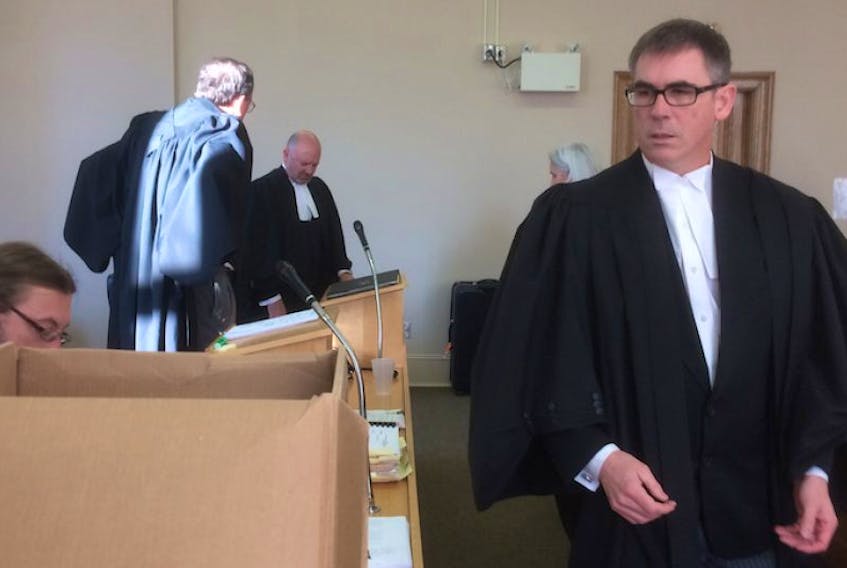The Roman Catholic Archdiocese of St. John’s contends the Brothers were an independent Catholic lay order, not controlled by the archdiocese.
But Budden referred to several decades-old requests for fundraising events from the Christian Brothers who ran the Mount Cashel Orphanage, to the Archidocese of St. John’s, asking the court, “If you don’t have financial independence, what do you have?”
The trial had been on hiatus for five and a half months while lawyers on both sides prepared written arguments. Delayed by a day by the first snowstorm of the season, closing arguments began Wednesday morning and are expected to stretch into Friday.
Witness testimony ended June 30 after 31 days during which the court heard from expert witnesses, church officials, two psychologists and a psychiatrist, a local historian, as well as from four men who were placed in the orphanage as young boys, who gave excruciating personal testimony of abuse and the effects they say it had on their lives.
Four test case John Does represent about 60 former residents from the 1940s to ’60s who say the Episcopal Corp. of St. John’s should be held liable for the physical and sexual abuse they say they suffered at the hands of certain members of the Christian Brothers.
The church contends it wasn’t involved in the orphanage’s operation.
But Budden said one party had power — the archdiocese — and the other, the Brothers, did not. Besides letters detailing fundraising requests from the 1950s, Budden referenced a Smallwood-era dialogue between the archbishop of the day and a cabinet minister regarding ”high-level” child welfare issues that left out the orphanage’s Brother Superior.
Budden contends the church knew or ought to have known what was going on at the orphanage.
He said while it’s been argued that attitudes have changed regarding physical abuse, sexual abuse has always been seen as evil.
Closing arguments continue this afternoon.
Closing arguments being heard in Mount Cashel civil trial
As the Mount Cashel civil trial returned to the Supreme Court of Newfoundland and Labrador Wednesday for closing arguments, abuse victims’ lawyer Geoff Budden called the Roman Catholic Church’s explanation “flimsy” in terms of how it said it handled requests from the Christian Brothers as simple courtesy — a matter of co-ordinating activities in the parish.

STORY CONTINUES BELOW THESE SALTWIRE VIDEOS








